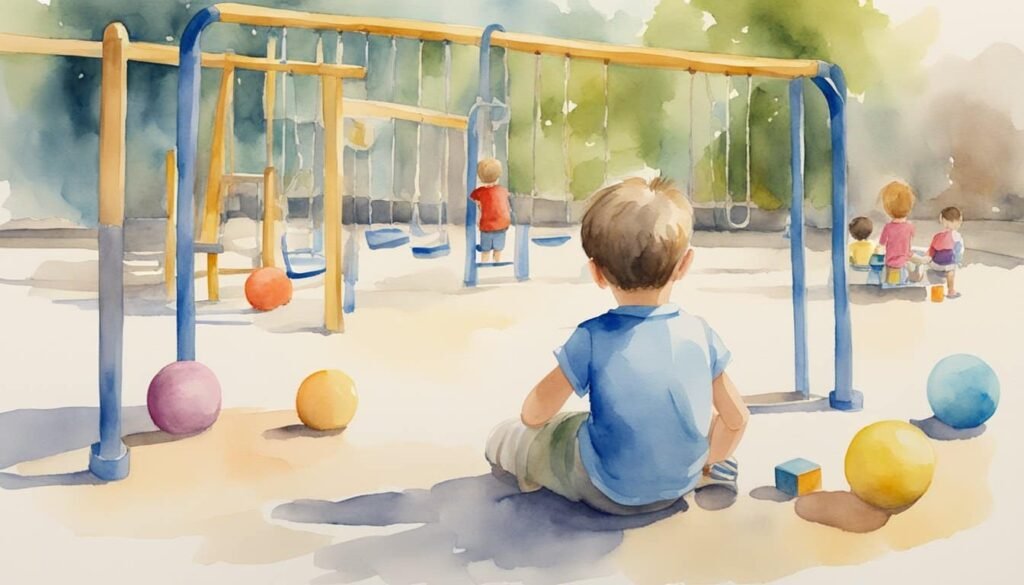Understanding Only Child Syndrome
Once thought to be maladjusted oddities, only children have been the center of fascination and misconceptions for psychologists seeking to decipher if siblings – or lack thereof – sculpt our character. The term “Only Child Syndrome” has roots in the 19th century, thanks to researchers like E. W. Bohannon and G. Stanley Hall, who leaned towards the belief that only children were socially deficient. However, this stereotype has been diligently rebutted by modern research.
Characteristics traditionally associated with an only child, such as being self-centered, lonely, or lacking social skills, no longer fit neatly into the personality box designed by early theorists. Contemporary studies, contrary to the isolating stereotypes, suggest that being an only child does not inherently lead to personality flaws. Alfred Adler, a notable psychologist, proposed that birth order could indeed influence personality traits but did not inevitably doom only children to negative behaviors.
- Personality Development: Studies suggest that only children tend to have strong relationship skills and are often highly creative due to more one-on-one time with parents.
- Socialization: Contrary to belief, only children can develop keen social skills – they often build strong friendships that compensate for sibling interactions.
Researchers continue to emphasize that differences in personality traits among only children and those with siblings are minimal. It’s crucial to be wary of dated stereotypes, as they rarely paint a complete picture of an individual’s character. The nuanced understanding of personality development shows that nurture and nature both play pivotal roles, with an emphasis on family dynamics and individual experiences over mere family size.
Social Dynamics and Stereotypes

The concept of “only child syndrome” often brings up social dynamics and pervasive stereotypes. This exploration unearths what only children face in terms of societal expectations and the contrasts drawn with their peers who have siblings.
Challenges Facing Only Children
Only children frequently navigate the complexity of social expectations amidst common stereotypes. They may confront assumptions of being selfish due to not having to share parental attention or material items with siblings. These societal beliefs can color interactions and relationships, placing undue pressure on only children to disprove such labels.
Siblings vs. Only Children
The social dynamics shift when looking at children with siblings. Unlike only children, siblings experience a natural environment for learning sharing and compromise from a young age. The birth order can also play a role in shaping personality – the oldest may be seen as a leader, the middle child as a peacemaker, and the youngest may attract attention with charm. The interaction among siblings lays a different foundation for social relationships, often rebuffing the idea that only children are inherently at a disadvantage.
Cultural and Family Influences

In examining the nuances of only child syndrome, we unearth the complex interplay between family structures influenced by cultural norms and state policies.
Impact of Family Planning Policies
China’s one-child policy has been a compelling case study in investigating the effects of an imposed family size on individual development. Child psychologists scrutinize the policy’s role in shaping behaviors typically labeled as spoilage or self-centeredness. The restriction to a single offspring often means parents and grandparents may overindulge the child, possibly fostering traits such as selfishness or being bossy due to lack of siblings with whom to practice compromise and sharing.
Cultural Expectations and Family Dynamics
Cultures place varying degrees of focus and pressure on children. In some, like China, being an only child may come with weighty expectations of success and self-reliance, which Toni Falbo’s research suggests often leads to confident, successful adults who are independent and reliable. However, this can also sometimes translate into less desirable attributes—being perceived as spoiled, coddled, or narcissistic. The absence of siblings can affect an only child’s emotional and social development, potentially leading to being perceived as lacking in social skills or appearing overly sensitive.
Family dynamics also play a significant part; with all resources and attention directed at one child, they might grow up self-absorbed or egocentric, traits colloquially known among the Chinese as ‘little emperor’ behavior. Meanwhile, kindness and agreeableness can flourish within a loving and balanced family environment, debunking negative stereotypes surrounding only children. The struggle lies in finding ample opportunities for socializing to cultivate a well-rounded adulthood.

